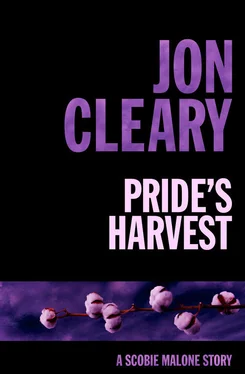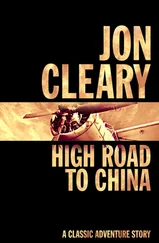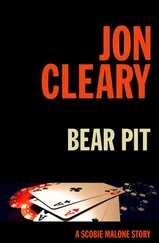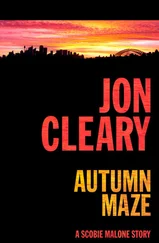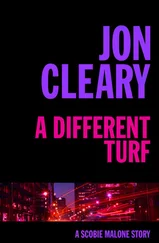Dedication Dedication Chapter One Chapter Two Chapter Three Chapter Four Chapter Five Chapter Six Chapter Seven Keep Reading About the Author Also by the Author Copyright About the Publisher
FOR ISABEL
Collamundra is a dozen towns.
Each character in the story is a dozen people.
A novel is the only cocktail I know how to mix.
Cover
Title Page
Dedication Dedication Dedication Chapter One Chapter Two Chapter Three Chapter Four Chapter Five Chapter Six Chapter Seven Keep Reading About the Author Also by the Author Copyright About the Publisher FOR ISABEL
Chapter One
Chapter Two
Chapter Three
Chapter Four
Chapter Five
Chapter Six
Chapter Seven
Keep Reading
About the Author
Also by the Author
Copyright
About the Publisher
‘You should take a week’s leave and come out here,’ said Lisa. ‘It’s so restful, just what you need.’
That had been the day before the murder; Lisa’s timing, usually so reliable, had been way off. Scobie Malone, missing his wife and children, already weary after only four days of getting his own meals, making his bed and trying to iron his shirts so that they didn’t look as if he had pressed them by sleeping on them, had hung up the phone and thought seriously of applying for a week’s leave. Murder had taken one of its rare holidays in the city and now would be as good a time as any to ask for a few days off. Then the very next day the routine telexed report had come in of the murder at Collamundra and later that afternoon there had been the telephoned request to Regional Crime Squad, South Region, in Sydney, asking for assistance.
Malone was the acting officer-in-charge of Homicide and he had assigned himself to the case without mentioning to any of his superiors at Police Centre that his wife and family were staying in the district where the murder had occurred. He had learned one thing, amongst others, from crims he had interviewed: the less police, especially superior officers, know, the better.
‘We’ll leave first thing in the morning,’ he told Russ Clements.
‘We flying or driving?’
‘We’ll drive. Another day won’t matter, and I’d rather have our own wheels out there than borrow some. The tracks are probably cold, anyway. They didn’t mention any suspects.’
‘Collamundra. Isn’t that where Lisa and the kids are staying?’
‘Keep your voice down. Why do you think I want to load myself with a homicide out in the bush? The last time we went bush the local cops were as unco-operative as the cow cockies.’
‘This is a Jap cow cocky who’s been murdered. Does that make any difference?’
‘He wasn’t a cow cocky, he was the manager of a cotton farm and gin. Yeah, that does make it interesting.’
‘So seeing Lisa and the kids wasn’t what interested you?’
‘Are you kidding?’
‘Are you taking your laundry with you? You’re beginning to look like me, a bachelor.’
Now Malone and Clements, in their unmarked police car, were approaching the end of the four-hundred-kilometre drive from Sydney to Collamundra. They had left early this Thursday morning, come over the Blue Mountains through the charred landscape of the summer bushfires, down the western slopes and out here to the rolling country that, beyond Collamundra, became the vast flat terrain of the western plains. The holdings hereabouts were not as huge as those farther west, but they were big enough; this was rich country and men had made comfortable fortunes on as little as five thousand acres. The landscape had begun to open out, unfolding till the eye could not take it all in without turning the head, and the sky had become immense, not anchored as it was on the coast by city skylines but dropping away behind the distant horizon to what one knew was eternity.
‘You know anything about trees, one from another?’ Malone was a city boy and sometimes he was ashamed at his ignorance of the native flora. Australia was still at least ninety per cent open space and he was almost as ignorant of it as the most recently arrived immigrant from over-crowded Europe and Asia. Crocodile Dundee, though the creation of a city-bred comedian, would have turned his back on him.
Clements was no more bucolic: ‘I know some shed their leaves and some don’t. But I wouldn’t know a river-gum from a Wrigley’s, so don’t ask me.’
Malone felt better: ignorance is an acceptable bond if nothing better offers.
As he had on previous sorties into the bush, he remarked the seeming absence of any livestock. The broad paddocks, dotted with (though he didn’t know their names) clumps of white cypress pine or kurrajong for shade, seemed to be raising more timber than sheep or cattle. The grazing paddocks were on one side of the main road, brown-tinted and dusty from summer; thin stands of yellowbox lined the road and behind them was the broad stock route, not used as much today as in the old heyday of droving when sheep flowed in slow motion along these tracks to the rail-head stockyards or, in time of drought, looking for better pasture. On the other side of the road were the wheatfields stretching away to a low line of hills that was no more than a wavering of the flat line of the horizon. It was now mid-April, the long drawn-out tail of a long hot summer, and the harvest out here would have been finished by late January, early February; the harrows were at work now, raising dust that drifted away as a grey-pink haze in the westering sun. A flock of galahs rose up from the fields, looking for a moment like a thickening of the haze. In the distance two kangaroos loped along, a jumping nervous tic in the tired eye.
A little later Clements said, ‘That’s where it must’ve happened.’
For some time they had been noticing the sprinkling of wisps of cotton on either side of the road, like a scattering of last year’s snow; except that no one had ever known snow to fall out here. Now they were passing the cottonfields, which stretched away into the distance on both sides of the road. Amidst the white glare the mechanical cotton-pickers moved like top-heavy houseboats on a broad white lake; the operators sat up front in their air-conditioned, glass-sided cubicles, remote and bored-looking. Trailers stood in access tracks beside the rows of cotton, waiting to be loaded by the pickers. Two trailers were being hauled by small tractors to a long low truck that would take the cotton, now compressed into modules, to the big steep-roofed shed at which Clements had nodded.
‘That’s the gin, I guess. You wanna call in there now?’
‘No, let’s go into town. I’m buggered. We’ll start tomorrow.’ He also wanted to stick by protocol: you did not land unannounced in another cop’s territory and start your investigations at once. No bird, animal or Cabinet minister enforces the territorial imperative more than does a policeman with rank.
They drove on, came to the edge of town, drove in past the wheat silos and the railway siding with its empty stockyards, past the BP and Shell service stations, the used car lots and the farm equipment sales yards, and then they were in the main section of town. They had passed a sign that said: ‘Collamundra, Pop. 9400’; and it seemed that the 9400 Collamundrans, give or take a few, were a civic-minded lot of voters. It was not a pretty town, it was too flat and sunbaked for that, but it was attractive; or had been made so. They passed a pleasant tree-shaded park; beside it, amidst sun-browned lawns, was a large community swimming pool. They went round the war memorial standing in the middle of an intersection. The memorial was a bronze Anzac on a marble plinth, staring up the street into the distance, his bayonet-topped rifle held up threateningly against any invader. It struck Malone that the Anzac was gazing eastwards, towards Sydney, home of the State government and city Homicide cops, as if the enemy was expected to come from there.
Читать дальше
